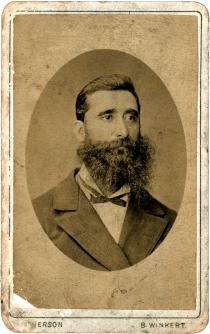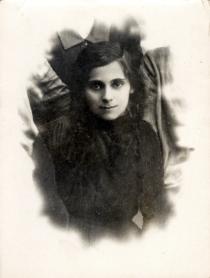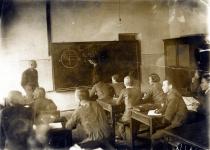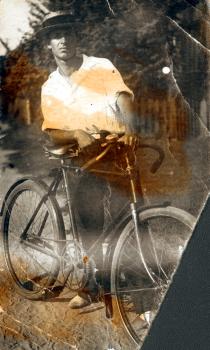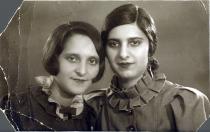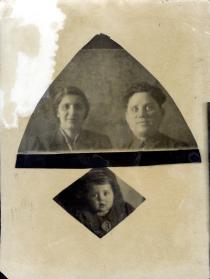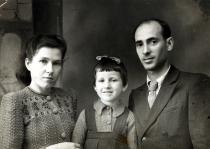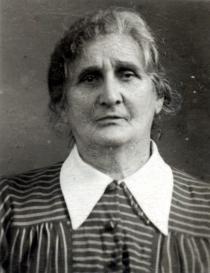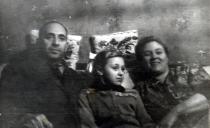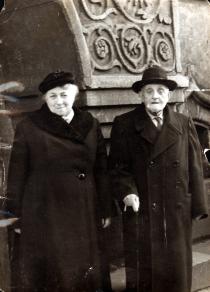On this photo I am a schoolboy in the 7th grade in the town of Pushkin, Leningrad region, at a lesson of mathematics.
I am sitting on the right at the third desk. There is my bag and a sheet of white paper on the table.
On the right beside a wall case sits my friend, my classmate Yuri Varshavsky.
Ahead of me sits Nina Nogovskaya, who I was in love with.
I was born in Gomel in 1917.
When I was a baby, my family moved to the town of Novozybkov in Bryansk region, now it bears the same name.
There I lived until 8 years of age. Novozybkov was a small, but a very cozy town.
Then our family moved to Leningrad in 1925. It was the times of NEP [new economic policy].
We went by train, there were so many people, I can't remember the details.
Father rented an apartment in Pushkin, in the suburbs of Leningrad.
It was in Pushkin that my childhood and youth passed. I have photographs from Pushkin.
I did not attend to the kindergarten. In Pushkin I was already in school age: entered the third grade.
I had very interesting friends at school, I can remember my friends now. One of my pals was Edgar Lvovich Nittoburg,
he is now a doctor of historical sciences, engaged in the studies of origin of nations and ethnography of the peoples.
Nittoburg lived in the Lyceum and his father was a writer. My other friend was half-blood Varshavsky, he died a long time ago
and the third friend of mine was Jew Kukhlinsky. All of us were friends. We walked near our houses and played together.
My favorite subjects at school were literature, history, physics and mathematics.
Apart of school we were interested in philosophy, the works by Hegel and Feyerbach.
We got this books from our school library. I did not like my German teacher, because I felt something alien in her to myself,
something unpleasant. And we composed a poem about her: 'Ich bine dubine-poleno-brevno, everyone knows, the German is a swine for a long time! '
Later, when Germans came to Pushkin, she worked for them and left with them, because in her soul, she, probably, was a fascist.
Others were good teachers. I did not feel any anti-Semitism then. I had a duel in the eighth grade because of a girl, with whom me and my friend were both in love.
Her name was Yana Bokanovich, a Pole, very beautiful. We had such a tradition, if there was a dispute, we organized a 'duel', until the first blood.
We went outside, behind such a big lavatory, my supporters at my side, his close to him, and the scuffle began.
In that particular fight he immediately smashed my nose, I started bleeding, and when I hit his chin, he, too, had blood, and the duel was over.
Most 'interesting' thing in my school history happened, when in 1936 Stalin declared the former 'nepmen' [businessmen in the time of NEP] deprived of electoral rights.
These people - 'lishentsy' - were ordered to leave Leningrad under the decree of the Central Committee of the Communist party.
[People undesirable for authorities were not allowed to live closer than 100 kilometers to large cities, that's how the well-known expression '101st kilometer appeared'].
When I was in the 9th form, I had to pass examinations. It was the final class, it was a 9-year education then. And my parents were forced to leave Pushkin for 'the 101st kilometer'.
I didn't go with them, I stayed to prepare for examinations, and when I came in the morning, my parents had already left.
That same morning I went to see my sister, and she said, that a little earlier the militia came to arrest me for not leaving with my parents.
I was not even allowed to finish school, I had not passed examinations for the 9th grade and was compelled to join my parents at 'the 101st kilometer'.

